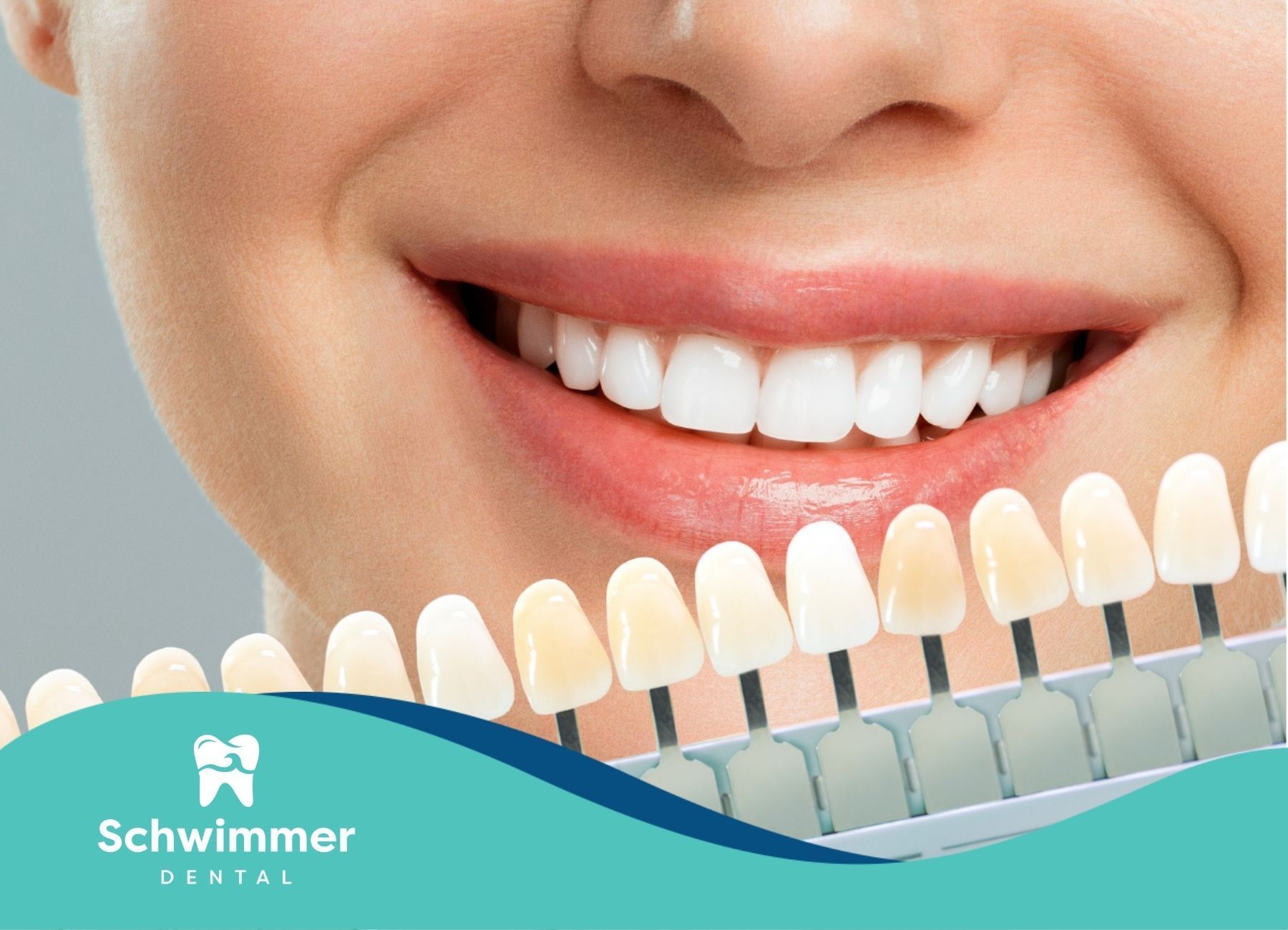Navigating Allergic Reactions to Dental Implants
Complications of Dental Implants
Hey there, if you're thinking about getting dental implants, it's a smart move to know what might come your way once you decide. One thing to keep an eye on is the chance of having a reaction to the materials, like good ol' titanium.
Allergic Reactions to Dental Implants
Turns out, some folks can have a tough time with titanium in their dental implants—not a common issue, but enough to throw a wrench in the works. It's like when your body throws a hissy fit because it thinks the titanium is an alien invader. NCBI says these metal-related allergies can lob a bunch of symptoms your way when they decide to show up.
So, what does an allergic reaction look like? Think:
- Hives
- Eczema
- Swelling
- Red and itchy skin or gum
- Atopic dermatitis
- Trouble with bone healing
- Pain and black spots (ouch)
- Sahara-like mouth dryness
- Mouth sores
- Swollen, sore mouth lining
The mess happens partly 'cause of something called tribocorrosion—basically, tiny bits come off the implant and stir up a storm in your body, causing inflammation and bone loss.
Titanium Allergy Symptoms
Titanium’s pretty popular for implants, thanks to its durability. But for some unlucky folks, their bodies decide to stage a rebellion. And the symptoms? They run the gamut, from driving you a little nuts to downright uncomfortable.
You might run into:
- Constantly inflamed gums
- Mystery pain that just won’t quit
- The gum version of a traffic light—red!
- Mouth itching like you've got ants in your pants
- Dry or burning mouth
- Mouth sores
These issues are a bit tricky since they can tag along with other dental headaches like infections or bone loss. For pinning down the cause, allergy testing's the way to go. There are a bunch of tests, including epicutaneous patch testing (that’s a fancy term for slapping something on your skin to see if it reacts).
| Symptom | Description |
|---|---|
| Inflammation | Swelling that won't leave |
| Pain | Weird unexplained pain |
| Redness | Gums blushing madly |
| Itching | Mouth playing itchy tricks |
| Dryness | Feels like a drought in your mouth |
| Ulcers | Ouch—it's sore and raw in there |
All in all, these aren't the kinds of projects you tackle solo. Dental pros might suggest trying out something like zirconia instead of titanium if things get rough. To find out more about what could go wrong or what else you can do, make sure to check our write-ups on dental implant failure signs and dental implant nerve damage.
Diagnosing Allergies
Spotting allergies related to dental implants is super important for smooth sailing in dental procedures. Getting it right prevents hiccups and ensures patients get the care they need.
Allergy Testing for Dental Allergies
Testing for dental allergies involves a blend of techniques to sniff out reactions to materials, especially titanium, used in implants. These methods are like keys, each fitting into specific locks of sensitivity.
- Metal-Lymphocyte Transformation Test (Metal-LTT) Metal-LTT checks how metal impacts your lymphocytes, those tiny warriors in your blood. Though traditional patch tests might be all over the place, Metal-LTT nails down specificity pretty well. Watch out, though—it can sometimes scream false alarm by spotting extra lymphocyte chatter, making it a bit less dependable than MELISA.
- MELISA (Memory Lymphocyte Immunostimulation Assay) Think of MELISA as the detective for metal allergies, especially titanium. It zeroes in on the response of memory lymphocytes—your body's little note-takers—when faced with metals. This method's got a solid rep for spotting real allergies.
- Patch Testing Imagine a tiny band-aid of potential allergens slapped on your back. Patch testing is all about that, checking how your skin reacts over time. It's handy, but tends to be hit-or-miss when it comes to metals.
Patch Testing & Blood Tests
Figuring out dental implant allergies often needs a double-whammy of patch and blood tests for the whole picture.
| Testing Method | Description | Pros | Cons |
|---|---|---|---|
| Metal-LTT | Blood test for metal-specific lymphocyte tattle-tales | Highly specific | Sometimes incorrectly signals allergies, not as reliable as MELISA |
| MELISA | Blood test measuring memory lymphocyte response to metal triggers | Top-notch accuracy | Needs special labs that aren't on every corner |
| Patch Testing | Smidge of allergens on the skin; see what happens | Simple, no ouchies involved | Results can leave you guessing with metals |
For folks hanging out in Point Pleasant Beach, New Jersey, knowing these tests could be a lifesaver. If weird symptoms pop up, chatting with your dentist is step one. A bit of poking around with internal tests might confirm any metal sensitivity suspicions.
Curious about tackling or dodging allergies and related hassles? Check out our reads on signs of dental implant infection and avoiding bone slip-ups with implants.
Management of Allergies
Home Management Techniques
Folks who find themselves battling allergies from dental implants can try these home remedies to ease their discomfort:
- Dental Cleanliness: Keep those pearly whites fresh by brushing and flossing often. It'll help in keeping irritation at bay and fend off infections.
- Steer Clear of Triggers: Find out what sets you off sneezing and sniffling, and do your best to avoid them.
- Open Up to Your Dentist: Let your dentist know about your allergy woes so adjustments can be made in your treatment plan.
- Popping Antihistamines: You can grab some over-the-counter antihistamines to tame those bothersome reactions.
- Chill Out: Stress can make everything worse, including allergies. So, a little relaxation or meditation couldn’t hurt.
Preventive Measures & Alternative Treatments
Want to dodgy those unwelcome allergies in the dental chair? Here are some ways to do just that:
- Allergy Alert: Always chat with your dentist about allergens that get you itchy or wheezy, so they can adjust things as needed.
- Patch Tests: Take one for the team—get tested for specific allergens before any dental work to pick the right materials.
- Treatment Blueprints: Ask for a breakdown of the treatment plan and materials so there're no surprises.
- Pre-medication Plans: If allergies hit hard, some antihistamines or steroids before your appointment might do the trick.
| Prevention Tips | Details |
|---|---|
| Tell Your Dentist | Share any known allergies upfront. |
| Try Patch Tests | See what's triggering your response. |
| Detailed Prep | Get a full breakdown of procedures and materials. |
| Pre-Meds | Take meds for severe allergies beforehand. |
Now, if titanium and zirconia implants make you squirm, dental bridges might just be your new best friend. No metal needed in your jaw with these, and they keep your smile intact.
Should it turn out you're in the minority that reacts badly to titanium implants, switching to zirconia might be the way to go. Tossing out all metal prostheses post-removal of titanium can also help.
Titanium Implant Considerations
Titanium vs. Zirconia Implants
When it comes to dental implants, you've got two main players: Titanium and Zirconia. Titanium is a favorite because it plays nice with the body—it’s strong and bonds well with bone. Success rates for titanium implants are sky-high—anywhere between 92.5% to 96.4%, and they hang in there with a survival rate from 94.7% to 99.4% over five years or more.
Now, if you’re allergic or just weary of metal, zirconia’s your ticket. This ceramic option is catching on for its metal-free vibe, especially if metals give you a rash or worse. But don't go canceling all your titanium orders just yet—the long-term info on zirconia isn't as beefy, so a dentist's advice is gospel here.
| Implant Type | Material | Success Rate | Survival Rate | Known Allergies |
|---|---|---|---|---|
| Titanium | Metal | 92.5% - 96.4% | 94.7% - 99.4% | Rare |
| Zirconia | Non-metal/ceramic | Limited Data | Limited Data | None reported |
Potential Complications & Dental Procedures
Titanium gets along with most folks, but not everyone's a fan of metal. Those who might have a yelling match with metal are looking at zirconia for peace. With implants, be they titanium or zirconia, you could run into some snags like infections, bone downgrades, or nerve annoyances.
If your body's allergic to titanium, zirconia could be the peacekeeper. No known allergies buddy up with zirconia implants, making them solid picks for those easily irritated by metal. Want zirconia? Sit down with your dentist to figure out what's best to keep your smile top-notch.
Picking the right dental implant material isn’t "one-size-fits-all." Health needs, potential allergies, and personal scenarios make the call. Always loop in a dental guru to uncover what fits your dental game plan.
Clinical Manifestations
Getting a grip on the signs of allergic reactions to dental implants helps with sorting out diagnoses and figuring out how best to help. Check out the symptoms, reactions, and what can be done about them below for a rounded view.
Symptoms & Reactions
Allergic reactions to dental implants can pop up in different ways. Some people might get hit with these right after getting implants, while others might notice them way down the road. Per NCBI, here’s what might happen if you’re allergic to titanium:
- Those pesky hives
- Eczema flair-ups
- Swelling
- Skin or mouth getting red and itchy
- Big-time stuff like atopic dermatitis
- Trouble with bone healing
- Feeling pain
- Tissue death around the area
- Orthopedic implants losing their strength
If someone’s breaking out in rashes or otherwise reacting, they might just have a titanium allergy, especially if they’ve had metal allergies before. Catching these issues sooner rather than later makes handling them a whole lot easier.
| Symptom Level | How Symptoms Show Up |
|---|---|
| Mild Bother | Hives, Eczema, Red Patches, Itching |
| Moderate Trouble | Swelling, Bone Troubles with Healing |
| Serious Issues | Pain, Tissue Damage, Major Skin Reactions, Implants weakening |
Treatment Options & Testing Methods
Dealing with allergies from dental implants needs some savvy diagnosing and specific treatments. It’s all about easing the symptoms and keeping extra problems at bay.
How To Tackle It
- Medications on Standby: Things like antihistamines and corticosteroid creams can usually handle mild reactions, reducing itchiness and inflammation.
- Taking Out the Implant: In tough situations, getting rid of the titanium implant might be needed.
- Swap Materials: Changing to zirconia implants could dodge allergic reactions as they’re less likely to cause a fuss.
Testing the Waters
Checking for allergies from dental implants usually takes some in-depth testing like:
- Patch Testing: A smidge of titanium and other allergens is put on the skin to watch for reactions.
- Blood Work: Searches for antibodies that hint at an immune reaction.
| Treatment Path | What's Involved |
|---|---|
| Meds | Things like Antihistamines, Corticosteroid Creams |
| Implant Redo | Only if Seriously Needed |
| Material Change | Go for Zirconia Implants |
Knowing and spotting these symptoms tied to titanium allergies lets healthcare folks offer the right fixes. Trying different treatments and being ahead of the curve on prevention cuts down on allergic reactions and any unwanted surprises.
SOURCES:
https://pmc.ncbi.nlm.nih.gov/articles/PMC7698636/
https://pmc.ncbi.nlm.nih.gov/articles/PMC10016148/



